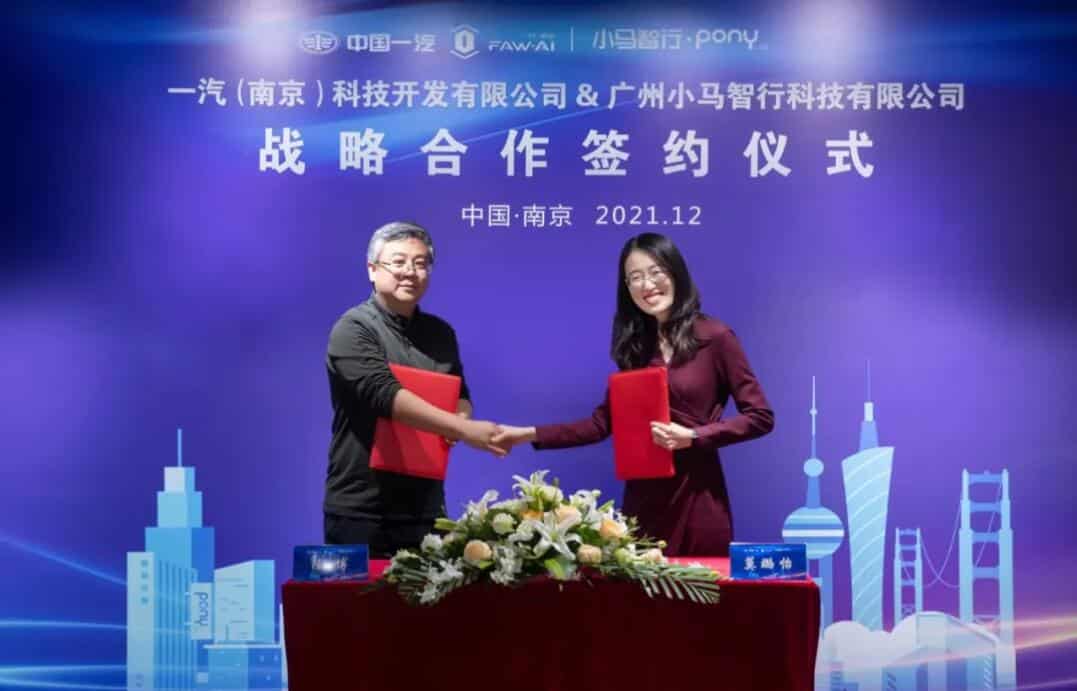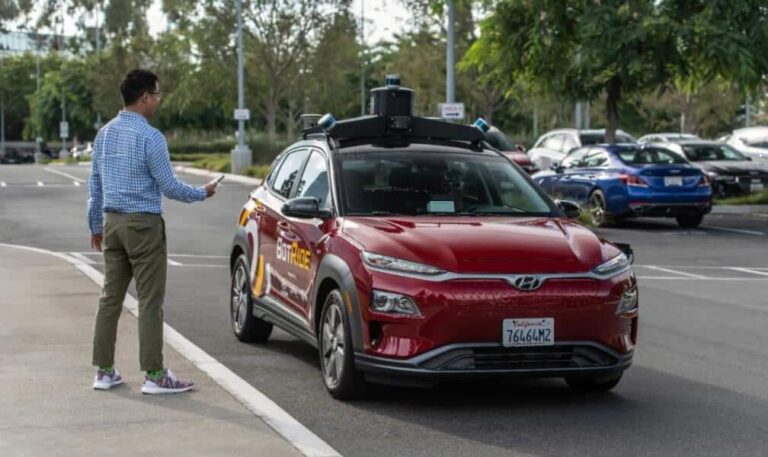Pony.ai will work with FAW to build a fleet of self-driving demonstration operations and collaborate on commercial operations in Guangzhou, Beijing, Shanghai, Changchun and Nanjing.
(Image credit: Pony.ai)
Pony.ai, a Chinese autonomous driving startup backed by Toyota Motor and Nio, today announced a strategic partnership with FAW Nanjing, a wholly-owned subsidiary of its strategic investor FAW, to accelerate the mass adoption of Robotaxis.
Pony.ai will work with FAW Nanjing to jointly develop a front-mounted mass production solution for autonomous driving sensor hardware systems, jointly develop models suitable for Robotaxi operations, and realize the large-scale application of low-cost autonomous driving platforms, according to an announcement.
The two sides also plan to jointly establish a fleet of self-driving demonstration operations and cooperate on commercial operations in Guangzhou, Beijing, Shanghai, Changchun and Nanjing to realize the scale operation of Robotaxis, it said.
FAW is a key partner in Pony.ai's push to commercialize autonomous driving, having made a strategic investment in it in October 2020.
Pony.ai was founded in late 2016 and currently has a team of more than 500 people. It has set up R&D centers in Silicon Valley, Guangzhou, Beijing and Shanghai, and runs Robotaxi operations locally.
In early February this year, Pony.ai announced that the first self-driving cars equipped with its latest-generation system officially rolled off the standardized production line and will join the company's Robotaxi fleet for large-scale operations.
On April 28th, Pony.ai said that it had upgraded its Robotaxi, and the first batch of standardized production self-driving cars were put into service.
On May 10, Pony.ai announced the joint release of a fully autonomous driving system with Luminar, a US-based LIDAR provider, using a 360° multi-sensor fusion solution to make vehicles safer and more reliable when operating in complex urban road conditions.
Pony.ai plans to mass-produce a vehicle-grade autonomous driving system in 2023, using a vehicle-grade sensor solution and Luminar's Iris lidar. This is Luminar's first strategic partnership with an autonomous driving company in China.

